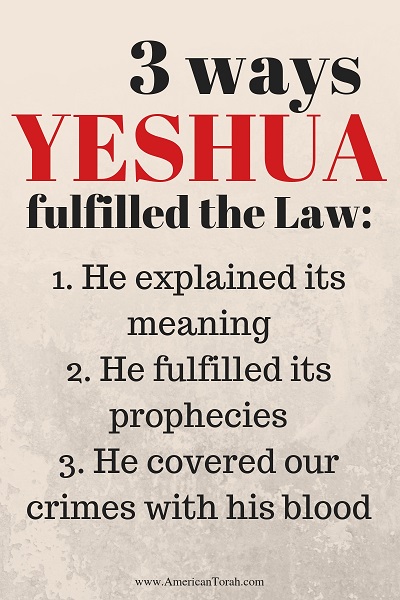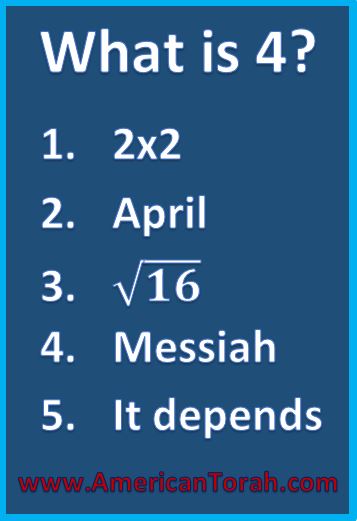Regarding circumcision, someone recently asked me,
If God is so loving, why base his entire covenant with His Chosen on violence especially against the most helpless? The whole point of Jesus’ ministry was to replace that law with a new standard of gentleness and forgiveness, so why seal it with still more violence? It just doesn’t add up to me.
His covenant was (and is) based on redemption and restoration. Circumcision is only a sign of that covenant. There is a lot of blood involved in God’s interaction with mankind. I don’t completely understand that, but I recognize a few hints. First, for whatever reason Adam chose death over life, and that decision has affected everything. The violence is already there by the actions of people, and the controlled violence of blood covenants serves in part to restrain the uncontrolled violence of mankind’s natural tendencies. Second, blood has some kind of cleansing property in a spiritual sense in that it allows God to interact with people who would otherwise be too repulsive to him. Third, blood symbolizes the life-and-death nature and permanency of covenants. It’s a solemnizer.
 I can understand your confusion regarding the apparent disparity between Jesus’ message of love and the necessity of his violent death. It never added up for me either. However, the problem is in our perceptions of Jesus’ ministry and purpose. He didn’t come to replace the law with a new standard. In fact, he said the exact opposite: “Think not that I am come to destroy the law, or the prophets: I am not come to destroy [kataluo: to tear down], but to fulfil [pleroo: to build up or to carry into effect]. For verily I say unto you, Till heaven and earth pass, one jot or one tittle shall in no wise pass from the law, till all be fulfilled. Whosoever therefore shall break one of these least commandments, and shall teach men so, he shall be called the least in the kingdom of heaven: but whosoever shall do and teach them, the same shall be called great in the kingdom of heaven.” If fulfilling the law is the same as annulling it for everyone else, then Jesus’ statement here was meaningless: “I am not come to destroy, but to abolish.”
I can understand your confusion regarding the apparent disparity between Jesus’ message of love and the necessity of his violent death. It never added up for me either. However, the problem is in our perceptions of Jesus’ ministry and purpose. He didn’t come to replace the law with a new standard. In fact, he said the exact opposite: “Think not that I am come to destroy the law, or the prophets: I am not come to destroy [kataluo: to tear down], but to fulfil [pleroo: to build up or to carry into effect]. For verily I say unto you, Till heaven and earth pass, one jot or one tittle shall in no wise pass from the law, till all be fulfilled. Whosoever therefore shall break one of these least commandments, and shall teach men so, he shall be called the least in the kingdom of heaven: but whosoever shall do and teach them, the same shall be called great in the kingdom of heaven.” If fulfilling the law is the same as annulling it for everyone else, then Jesus’ statement here was meaningless: “I am not come to destroy, but to abolish.”
Jesus mission in regards to fulfilling the Law was three-fold. First, he completed or built up our understanding of it through his teachings on the two central commands of Torah: love God and love your neighbor. Second, he fulfilled (and will fulfill) various prophecies embedded in the Law. Third, he fulfilled the requirement of blood to allow us to approach God (or God to approach us) despite our spiritual stench. This is a physical manifestation of a spiritual law that we don’t have to understand in order to take advantage of. Something like quantum theory. The laws that govern the interactions of subatomic particles are incomprehensible to most of us, but still necessary for life. The thing that we have to acknowledge is that nothing other than the mercy shown through his blood (and no other action, inaction, or attitude) would be entirely sufficient to restore us to a right relationship with God.
For what it’s worth, you’re in good company. Moses’ wife was none too happy about circumcision, either. “Then Zipporah took a sharp stone, and cut off the foreskin of her son, and cast it at his feet, and said, Surely a bloody husband art thou to me.” Blood is a mysterious thing that science can never quite understand, and violence does solve some problems.
More info:
Blood Draws Near by Jon Behrens
Circumcision and Cutting a Covenant by Walter Snyder


 What is 4? 4 is 2+2. It is also 2*2, the square root of 16, 2^2, 4*1, 100/25, a representation of the Messiah, a common term of a first enlistment in the army, and the month of April. If, in the course of a math lesson on squares, I ask “What is 4?” and you reply “April,” I would say “Wrong. 4 is not April; it is the square of 2.” I would be correct and you would be incorrect, but only in that context. In a discussion on calendars, “April” might be just what I was looking for.
What is 4? 4 is 2+2. It is also 2*2, the square root of 16, 2^2, 4*1, 100/25, a representation of the Messiah, a common term of a first enlistment in the army, and the month of April. If, in the course of a math lesson on squares, I ask “What is 4?” and you reply “April,” I would say “Wrong. 4 is not April; it is the square of 2.” I would be correct and you would be incorrect, but only in that context. In a discussion on calendars, “April” might be just what I was looking for.